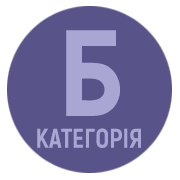THE EVOLUTION OF ROMANCE AND GERMANIC LANGUAGES IN THE CONTEXT OF GLOBALIZATION: SOCIOCULTURAL CHALLENGES AND LINGUISTIC INTERACTIONS
DOI:
https://doi.org/10.32782/philspu/2024.7.10Keywords:
linguistics, German language, English language, Romance-Germanic languages, comparative linguistics, etymologyAbstract
The article explores the role of Romance-Germanic languages in modern linguistics, focusing on their influence and interaction in the linguistic environment. Significant attention is given to the etymological aspect of languages, examining the origin and evolution of words in Romance-Germanic languages. The analysis delves into the interplay of vocabulary and grammar in these languages, highlighting key factors shaping their contemporary structure. The article also considers the importance of Romance-Germanic languages in the modern world, particularly their role in international communication and a globalized society. The author examines how these languages contribute to cultural exchange and foster the development of intercultural understanding. Special emphasis is placed on innovative approaches in studying Romance-Germanic languages, considering modern methods and technologies that contribute to advancing linguistic research. This article aims to examine the role of Romance-Germanic languages in contemporary linguistics, study their influence and interaction in the linguistic context, and analyze the etymological features of these languages. It aims to illuminate their relationships in vocabulary and grammar and determine their role in today's globalized society. Various research methods are employed to achieve the stated goal. The author conducts an etymological analysis of words to study their origin and evolution in Romance-Germanic languages. Additionally, the article utilizes the synthesis of linguistic data to highlight common and distinctive features of these languages, including an analysis of their impact on international communication and cultural exchange. The concluding part of the article identifies the prospects for developing Romance-Germanic languages in the future, considering their possibilities and challenges in the context of contemporary linguistic trends.
References
Akramova Z. Konvertierende Wortbildung im romanisch-germanischen Vergleich: Monographie. Sciencia Scripts. 2023. 108 р.
Benveniste É., Skinner J. K., Meek M., Barthes R. Problems in General Linguistics. HAU. 2024. 350 р.
Bizzocchi A. Revising the History of Germanic Languages: The Concept of Germany. International Journal of Language and Linguistics, 2031, 9(1), рр. 1-5.
Brakhage L. E. Linguistic attitudes: understanding generational communication biases to improve organizational culture. Independently published. 2024. 167 p.
Darvin R., Sun T. Intercultural Communication and Identity (Elements in Intercultural Communication). Cambridge University Press. 2024. 68 р.
Hudley A., Mallinson C.,Bucholtz M. Inclusion in Linguistics. Oxford University Press. 2024. 472 р.
Khairulina N. et al. Modern Linguistic Trends in Developing Romance and Germanic Languages in the Intercultural Dimension. International Journal of Language and Linguistics. 2024, Volume 74, Issue 3, рр. 26-31
Kreuz R. Linguistic Fingerprints: How Language Creates and Reveals Identity. Prometheus. 2023. 256 р.
Kuzmenko T., Fakhurdinova F., Perova P., Stativka O., & Pashchuk Y. Modern european professional experience of the translator of romano-germanic languages. Laplage Em Revista, 2021, 7, рр. 408-415.
Matthews P. H. The Concise Oxford Dictionary of Linguistics. Oxford University Press. 2014. 443 р.
Montrul S., Polinsky M. The Cambridge Handbook of Heritage Languages and Linguistics. Cambridge University Press. 2024. 988 р.
Park-Johnson S., Shin S. J. Linguistics for Language Teachers: Lessons for Classroom Practice. Routledge. 2020. 218 р.
Pereltsvaig A. Languages of the World: An Introduction. Cambridge University Press. 2020. 502 p.
Yule G. The Study of Language. Cambridge University Press, 2022. 404 р.







